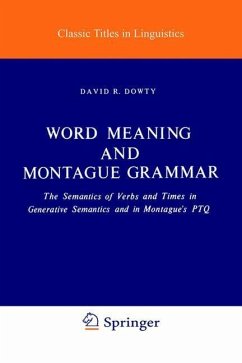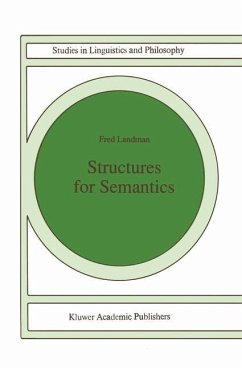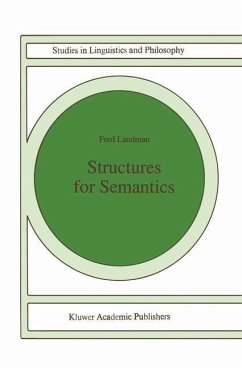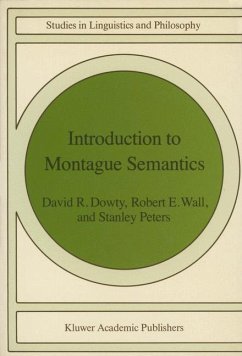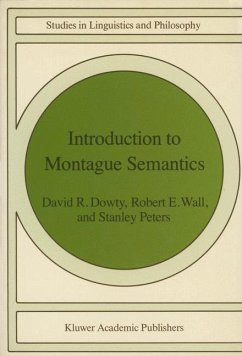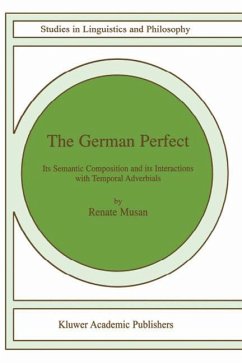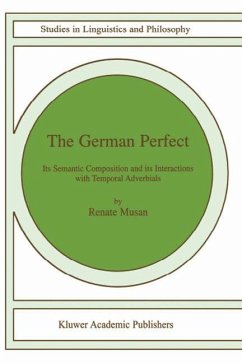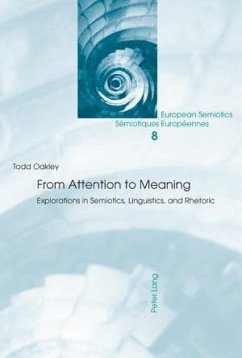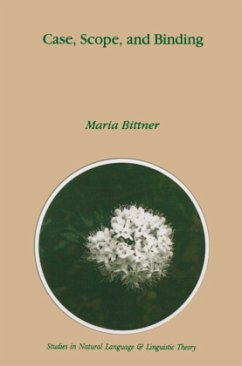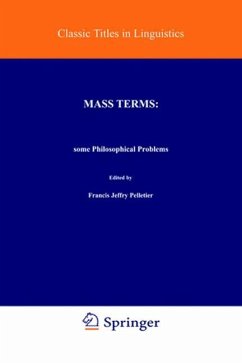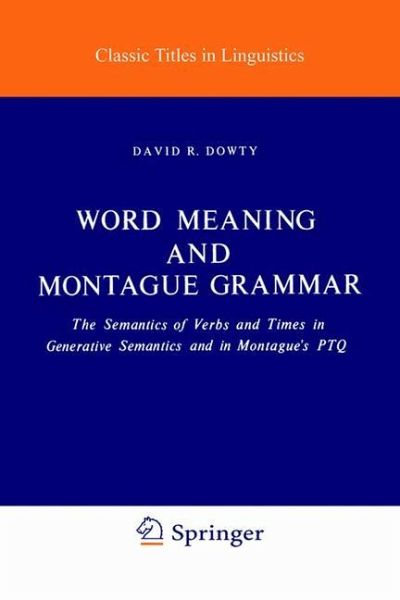
Word Meaning and Montague Grammar
The Semantics of Verbs and Times in Generative Semantics and in Montague's PTQ
Versandkostenfrei!
Versandfertig in 1-2 Wochen
168,99 €
inkl. MwSt.
Weitere Ausgaben:

PAYBACK Punkte
84 °P sammeln!
The most general goal of this book is to propose and illustrate a program of research in word semantics that combines some of the methodology and results in linguistic semantics, primarily that of the generative semantics school, with the rigorously formalized syntactic and semantic framework for the analysis of natural languages developed by Richard Montague and his associates, a framework in which truth and denotation with respect to a model are taken as the fundamental semantic notions. I hope to show, both from the linguist's and the philosopher's point of view, not only why this synthesis...
The most general goal of this book is to propose and illustrate a program of research in word semantics that combines some of the methodology and results in linguistic semantics, primarily that of the generative semantics school, with the rigorously formalized syntactic and semantic framework for the analysis of natural languages developed by Richard Montague and his associates, a framework in which truth and denotation with respect to a model are taken as the fundamental semantic notions. I hope to show, both from the linguist's and the philosopher's point of view, not only why this synthesis can be undertaken but also why it will be useful to pursue it. On the one hand, the linguists' decompositions of word meanings into more primitive parts are by themselves inherently incomplete, in that they deal only in distinctions in meaning without providing an account of what mean ings really are. Not only can these analyses be made complete by a model theoretic semantics, but also suchan account of these analyses renders them more exact and more readily testable than they could ever be otherwise.





